The movie poster found in the lobby, or in special display cases outside the theater, announced the current or forthcoming attraction. They were the most visible of the many types of advertising ephemera and were the first to be collected. Collectors began discovering their charm and desirability well over a half-century ago.
History of the Movie Poster
In the earliest years of the cinema, from 1890 to 1900, the announcement of a film’s showing was frequently added to the regular vaudeville poster. The first movies were quickies of less than 10 minutes duration; just another of the acts on the playbill. Primitive movie posters, when they finally came along, were usually just a plainly printed announcement devoid of illustrations and often concerned more with the phenomenon of a moving picture than with its contents. They were often large sized letters mixed with simply illustrations or photos. During the infancy of motion pictures the poster sizes were of mixed and varied types and little care was given them. Their purpose was mainly functional, and they were quickly discarded. Few survived down to the present day and are collected only for their historical value.
As a result of the growth and permanence enjoyed by the film industry, the movie poster eventually began to evolve and during the 1920s became an art form in its own right, as well as an object of beauty. After 1910, they began to contain more information; and more attention was paid to its design and execution. Credits, titles and the number of reels were displayed, color was added, and the amount of photos and line drawings increased.
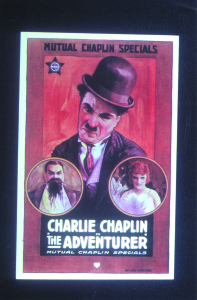 The earliest posters were printed by stone lithography, a method perfected during the second half of the previous century. World War I cut off the supply of granite supplies from Germany and the photomechanical method came into widespread use. A generation later, around 1930, modern photoelectric techniques were employed.
The earliest posters were printed by stone lithography, a method perfected during the second half of the previous century. World War I cut off the supply of granite supplies from Germany and the photomechanical method came into widespread use. A generation later, around 1930, modern photoelectric techniques were employed.
By the end of World War I, the U.S. movie industry found itself the world leader; beginning its climb to a legendary triumph of gigantic proportion. Along with the forward thrust of American film making went a complementary increase in the usage and quality of the movie poster.
This period of time, approximately 1918 to 1920, was the start of the movie poster era. Every film, including most “B” types, utilized poster advertising. All types of posters were described in the press books released with such films. Such books were used by theater managers to order needed posters. By the mid-1920s nearly every poster was fully colored (4-color art), years before the motion pictures themselves became colored.
Cinemabiliasts consider the decades between 1920 and 1950, with emphasis on the 1930s, as the “Golden Era” of the movie poster. Posters were of superb quality and were produced in abundance. Every town, city and hamlet in the nation had one or more movie houses and they all made extensive use of posters. Especially favored was the 14″x22″ size, called window cards, which were admirably suited for shop and store windows.
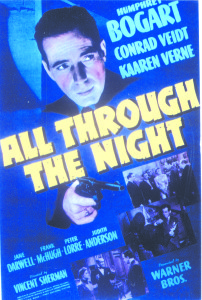 The movie poster since 1950 has been mostly unappealing and lifeless. Only their low price and apparently boundless supply make them attractive to collectors. There are some exceptions, mainly in the sci-fi and fantasy realms. Blockbuster movies, such as “Star Wars” (whose poster by Frazetta is quite attractive), and the many “Star Trek” spin-offs have a large fan following.
The movie poster since 1950 has been mostly unappealing and lifeless. Only their low price and apparently boundless supply make them attractive to collectors. There are some exceptions, mainly in the sci-fi and fantasy realms. Blockbuster movies, such as “Star Wars” (whose poster by Frazetta is quite attractive), and the many “Star Trek” spin-offs have a large fan following.
Movies, like old soldiers, never die; they just fade away. Instead, the movie-going public in the years before cable television and video tapes was treated to numerous repeat showings of the original product. Such film presentations are titled “Re-Releases” and they, too, generate their own advertising ephemera for each distribution turn. Re-Released posters were almost always inferior in quality and appearance. Coloring was often duo-tone or three-color as opposed to the original four-color poster.
The best printer of movie posters is considered to be Morgan and its script-like name is easily read on their posters. The company, like its predecessor in the business, Strobridge Litho, did its best to prevent any one artist from becoming important or famous enough to command higher wages. They segmented the work of each poster among different artists. Thus, with the exception of Norman Rockwell and a few others, we know little about movie poster artists. Incidentally, Norman Rockwell posters, such as “Song of Bernadette,” command substantial amounts of money.
Poster Collecting
One significant advantage in the collecting of movie posters is that there is an identifying number in the lower right hand corner which tells the year of issue along with a control number. If the poster bears an “R” in front of the regular number, then you know it is a Re-Release. Early posters from the pioneer days lack this numbering but their authenticity can be told by the paper’s age, the inks used, and the general appearance.
The 27″x41″ size is the most popular of all. Called a “one-sheet,” it was the poster used in front of the theater and inside the lobby, usually on the wall. The terms, such as “one sheet,” “three sheet,” and “six sheet” come not from actual use but from the printing trade’s jargon and have reference to machine requirements.
“One Sheets” were available for nearly every movie made since the beginning of moviemaking. Often two, sometimes more, “one sheets” were made for a movie and labeled “Style A,” “Style B,” etc. Different styles went to different parts of the country in order to appeal to regional tastes. A poster depicting a semi-clad woman would never have been sent to the “Bible Belt” during the 1920s, 1930s, or even ’40s. Such a poster, however, was quite all right in the metropolises of the North and Midwest.
The three-sheet poster consists of one large and one small sheet and measures 40″x80.” It was only for external use in the big cities for first runs. Some of these were kraft-backed for ease in displaying. The Six Sheet was a giant and measured 80″x80.” It was rarely used, being meant solely for the sides of buildings.
Two smaller posters are favorites with collectors. Each served a special use. The 14″x36″ insert was exclusively for lobby use and more than any other poster is likely to have a close-up of the film’s stars. Occasionally these inserts came 22″x28″ on heavier cardboard stock. The 14″x22″ window cards, previously mentioned, were destined for outside promotions in the windows of area stores. They came designed with a space left at the top for printing or writing in the name of the theater and show dates. These smaller size posters are highly collectable because they are so easy to handle and display.
Whatever their size, movie posters are a colorful, fascinating collectible. This is a hobby which has had a spectacular growth over the last 40-50 years. But it can still be a reasonably priced pursuit as the supply of old time movie posters remains plentiful and all but the great classics and cult sci-fi topics are priced from $5 to $50. However, the time clock is ticking and it will not always be so.
Note: All illustrations are one-sheet posters:
Mutual Studio’s Charlie Chaplin film/ “The Adventurer” (1917). 1933 classic/ “Gone With the Wind.” Bogart film made shortly before “Casablanca” (1942)

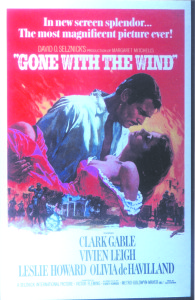







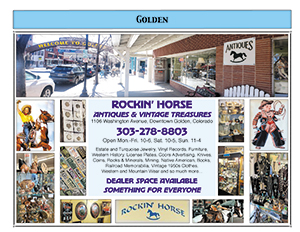




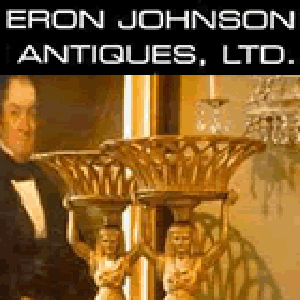

Follow Us